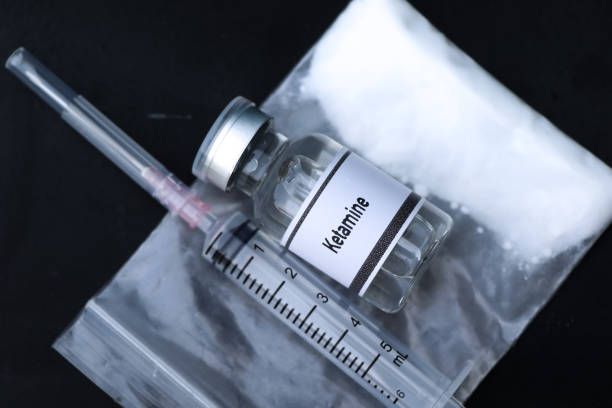Newsletter No. 2, 2008 www.psychopharmbulletin.com Volume 41 • Number 2 • 2008
Psychopharmacology BULLETIN Newsletter
the advance newsletter of Psychopharmacology BULLETIN
Summary—Index of This Issue On-Press
• ORIGINAL RESEARCH
• EVIDENCE BASED MEDICINE
Are SNRIs More Effective than SSRIs? A Review of the Current State of the Controversy—p.2
The selective serotonin reuptake inhibitors (SSRI) are widely considered to be the first choice for antidepressant therapy. There is evidence from inpatient studies dating to 1986, however, suggesting that the tricyclic antidepressant clomipramine, which inhibits reuptake of both serotonin and norepinephrine, may have greater efficacy than some SSRIs for severe depression. There is controversy whether the newer, better tolerated, and safer serotonin norepinephrine reuptake inhibitors (SNRIs; venlafaxine, duloxetine, and—in some countries—milnacipran and desvenlafaxine) are more efficacious than SSRIs.
Michael E. Thase, MD
Criteria for Defining Symptomatic and Sustained Remission in Bipolar I Disorder: a Post-Hoc Analysis of a 26-Week Aripiprazole Study—pp.2/3
In aripiprazole-treated patients, symptomatic remission rates were consistent at weeks 8, 16, and 26; sustained remission rates at week 8 were retained at weeks 16 and 26. The authors concluded that when discerning an operational definition of remission in patients with a recent manic or mixed episode, the YMRS 7 criterion and sustaining this criterion for 8 weeks can be a useful clinical or research tool for assessing clinical recovery.
Prakash S.Masand, MD, James Eudicone, MS, Andrei Pikalov, MD, PhD, Robert D.McQuade, PhD, Ronald N.Marcus, MD, Estelle Vester-Blokland, MD, and Berit X. Carlson, PhD
Bipolar I Depression Outpatient Treatment Quality and Costs in Usual Care Practice —p.3
Fifty-six percent of the patients diagnosed with bipolar I depression received both an antimanic agent and psychotherapy during their acute phase depression treatment, whereas 15 percent received an antimanic agent without psychotherapy. Eighteen to 28 percent of spending was accounted for by treatment that did not meet the standards of practice guidelines—and two-thirds to three-quarters of it was treatment that included an antidepressant without anantimanic agent (care that is advised by guidelines).
Alisa B.Busch, MD, MS, Richard G.Frank, PhD, and Gary Sachs, MD
Addressing Methodological Issues in Studying Antidepressant Onset Efficacy Using Prespecified Sensitivity Analyses—p.4
Assessing antidepressant onset efficacy presents substantial methodological challenges. Most assessments of onset efficacy are based on post hoc analyses. This article presents a case study of a prospectively designed trial to compare antidepressant onset efficacy. The authors concluded that prospectively designed studies (as opposed to retrospective comparisons) can be implemented and sensitivity analyses can be used to address concerns regarding assumptions and arbitrary decisions.
Ilya Lipkovich, PhD, Craig H.Mallinckrodt, PhD, Apurva Prakash, BA, and Andrew A.Nierenberg, MD
Are SNRIs More Effective than SSRIs? A Review of the Current State of the Controversy
Within 5 years of the introduction of fluoxetine in late 1987, the selective serotonin reuptake inhibitor (SSRI) class of antidepressants had supplanted the tricyclic antidepressants (TCA) as the first-line pharmacotherapy for major depressive disorder throughout much of the industrialized world. There is no doubt that pharmaceutical marketing played a large role in the rapid ascendance of the SSRI class (i.e., the TCAs were no longer patented drugs and, as such, were not marketed, whereas the SSRIs were vigorously promoted). Nevertheless, the SSRIs had a number of real advantages over the TCAs, including being easier to prescribe, better tolerated, and much safer in overdose.
The controversy about the relative efficacy of different types of antidepressants continues in part because there are numerous problems that limit the sensitivity of randomized controlled trials (RCTs) to detect efficacy differences between active antidepressants. Although there is only a partial solution to the problem of inadequately powered studies, meta-analysis permits quantitative synthesis of results from a group of relevant RCTs comparing various types of antidepressants. Meta-analyses of RCTs comparing the SSRIs with two of the SNRIs—venlafaxine and duloxetine—may have greater efficacy, though there is essentially no evidence that either of these drugs is superior to escitalopram. For venlafaxine, which is so far the most extensively studied SNRI, the magnitude of this advantage versus SSRIs other than escitalopram is modest in unselected patient groups (NNT values range between 10 and 15) and appears to be greater versus fluoxetine than other members of the class. For duloxetine, the advantage versus paroxetine and fluoxetine appears to be limited to more severely depressed patients, and confidence in this finding is limited by the fact that the studies used minimum therapeutic doses of SSRIs. With respect to the other two SNRIs, there are no data yet available to evaluate the relative efficacy of desvenlafaxine. Available data suggest that there is no efficacy advantage for milnacipran. The latter finding, coupled with the failure of both venlafaxine and duloxetine to significantly separate from escitalopram, highlights the limited clinical utility of comparisons across particular classes of medication.
Michael E. Thase, MD. Psychopharmacology Bulletin. 2008;41(2):In Press.
Criteria for Defining Symptomatic and Sustained Remission in Bipolar I Disorder:
a Post-Hoc Analysis of a 26-Week Aripiprazole Study (Study CN138-010)
Bipolar I disorder is a lifelong episodic illness that is characterized by manic or depressive episodes followed by symptom-free periods. Remission is a key goal after treating an acute episode of bipolar I disorder; however, there are no established definitions to measure clinical recovery, and recurrence occurs frequently in this patient population. Further understanding is needed for the correlation between attaining remission at a specific time point and maintaining sustained remission during treatment. The Systematic Treatment Enhancement Program for Bipolar Disorder (STEP-BD) examined time to recurrence of mania, hypomania, mixed state, or a depressive episode in subjects who were symptomatic at study entry but subsequently achieved recovery and determined that recurrence was frequent and associated with the presence of residual mood symptoms at initial recovery.
In conclusion, the use of more rigorous criteria to define symptomatic or sustained remission for fewer patients with bipolar I disorder and may be more useful in assessing remission in clinical trials compared with the standard criterion. These data confirm that sustaining remission is challenging and there is fluctuation in symptomatic stability in the bipolar population. Sustained remission for 8 weeks appears to be a good predictor for continued remission, as shown by the high retention rate of sustained remission at weeks 16 and 26 in aripiprazole-treated patients with bipolar I disorder using either standard or more rigorous criteria. The more rigorous YMRS criterion of 7 also appears to be a more discriminative indicator for the potential to relapse than the standard criterion (YMRS 12). When discerning an operational definition of remission in patients with a recent manic or mixed episode, the YMRS 7 criterion and sustaining this criterion for 8 weeks can bea useful clinical or research tool for assessing clinical recovery.
Prakash S. Masand, MD, James Eudicone, M
S, Andrei Pikalov, MD, PhD, Robert D.McQuade, PhD, Ronald N. Marcus, MD, Estelle Vester-Blokland, MD, and Berit X. Carlson, PhD.
Psychopharmacology Bulletin. 2008;41(2):In Press.
Bipolar I Depression Outpatient Treatment Quality and Costs in Usual Care Practice
Bipolar disorder treatment is complicated and evolving. Maximizing lithium therapy has historically been recommended as the first-line treatment. More recently, other agents such as lamotrigine, quetiapine, and a combination of olanzapine and fluoxetine have begun to demonstrate efficacy. The role of antidepressants in the treatment of bipolar depression has been uncertain, including concerns that they may induce mania or mood cycling, thus worsening the course of illness. And while practice guidelines have long recommended psychotherapy in the treatment of bipolar depression, only recently have specific psychotherapies been shown to demonstrate efficacy in randomized controlled trials.
This study provides new information regarding the longitudinal quality and costs of care for bipolar depression. A sizable proportion of the treatment dollars spent on persons with new episodes of bipolar I depression went toward care that did not meet the standards of practice guidelines—and much of that represented treatment advised against by guidelines because it could worsen the course of the illness. This observation provides an important clinical and policy opportunity to redirect resources to be consistent with practice guideline standards. This study also provides evidence that when conducting studies using administrative data, hospital admissions alone do not adequately describe affective instability for patients with bipolar disorder, since much switch in polarity occurred in the outpatient setting. This knowledge is useful to researchers and policy makers when using administrative data in conducting quality assessment for systems of care.
Alisa B. Busch, MD, MS, Richard G. Frank, PhD, and Gary Sachs, MD.
Psychopharmacology Bulletin. 2008;41(2):In Press.
Addressing Methodological Issues in Studying Antidepressant Onset Efficacy Using Prespecified Sensitivity Analyses
Antidepressant medications typically exhibit a delay of at least 2 weeks following the start of therapy before patients experience clinically relevant improvement. During this latency period, patients remain symptomatic and functionally impaired, with an associated risk for suicide and morbidity, a prolonged reduction in quality of life, and a continued loss of work productivity. In contrast, antidepressants with a more rapid onset of action may offer potential benefits. Therefore, the development of new pharmacotherapies, with rapid onset of action, is an active area of research.
Studying onset of antidepressant action poses formidable methodological challenges. This article illustrates, however, that prospectively designed studies (as opposed to retrospective comparisons) can be implemented and that sensitivity analyses can be used to address concerns regarding assumptions and arbitrary decisions. Based on these results, we offer the following recommendations when developing future studies to assess antidepressant onset efficacy: A unidimensional subscale assessing core depressive symptoms (such as the HAMD Maier subscale) may be able to better distinguish differing drug effects when compared with the multidimensional HAMD Total score. A traditional assessment schedule (weekly visits) is adequate for assessing treatment group differences when used in conjunction with a categorical repeated measures analytic approach and does not increase the burden of implementing the study, the study cost, or the risk of increased placebo response (as would be more likely for a study using more frequent study visits). Onset of action can be based on 20–30% initial improvement, and the additional requirement that the improvement be sustained or exceeded throughout acute treatment may better differentiate drug effects from placebo.
Ilya Lipkovich, PhD, Craig H.Mallinckrodt, PhD, Apurva Prakash, BA, and Andrew A. Nierenberg, MD
Psychopharmacology Bulletin. 2008;41(2):In Press.




Leave A Comment